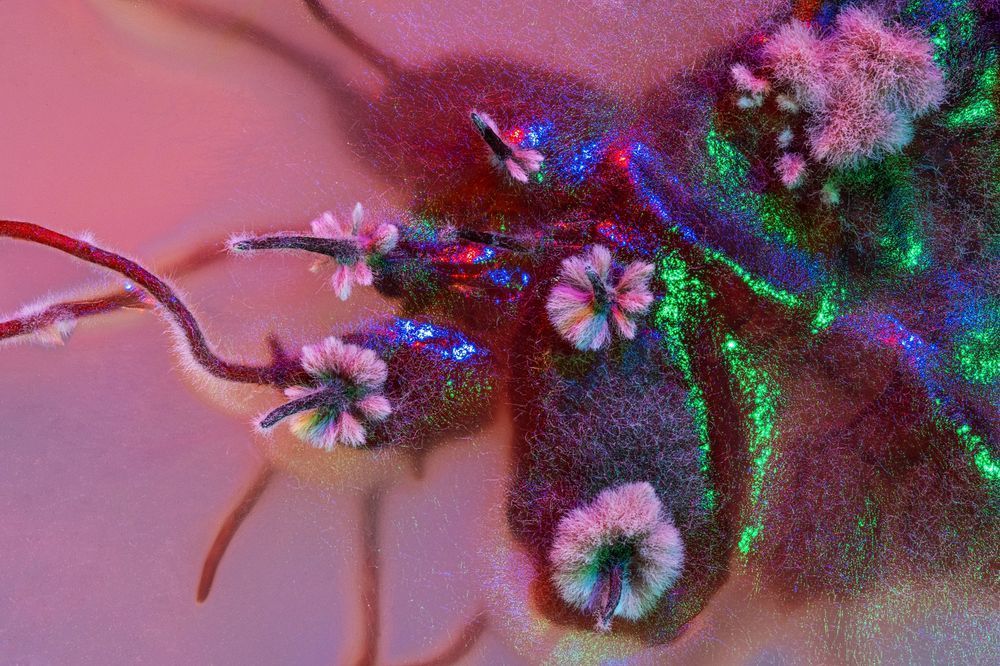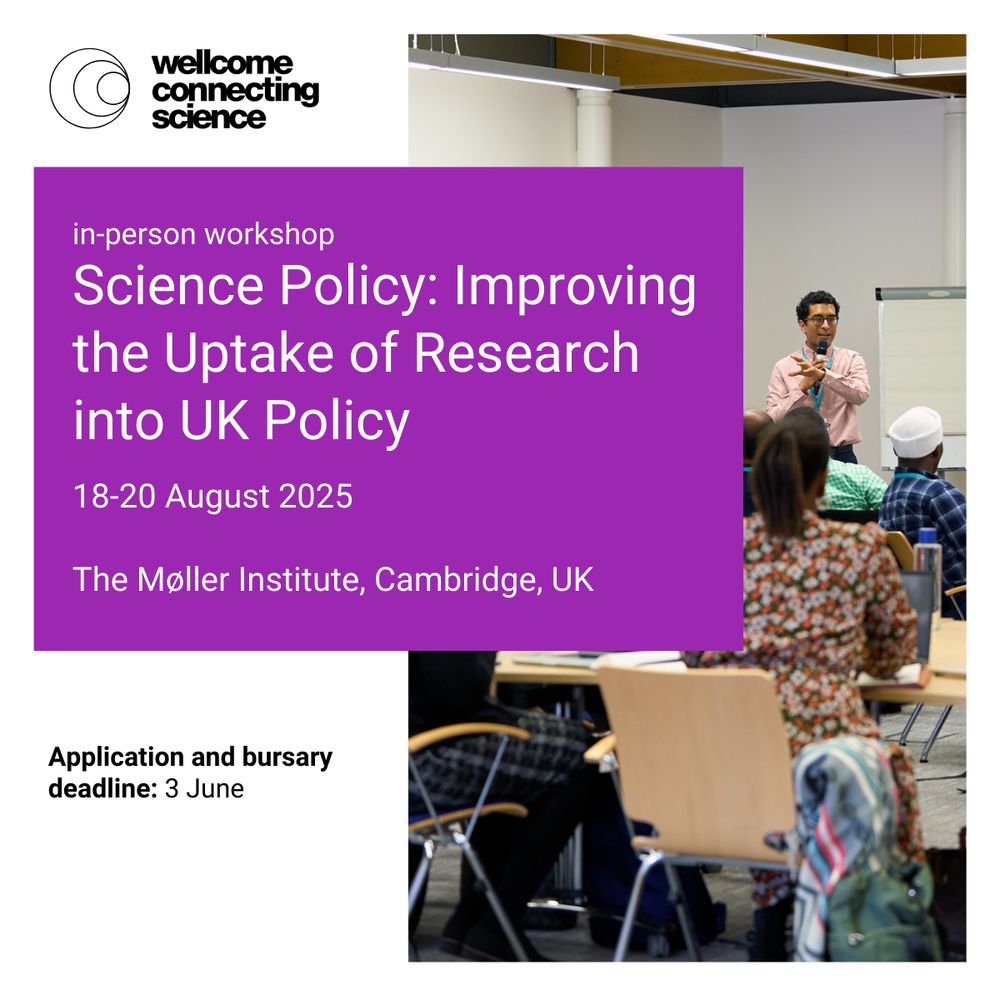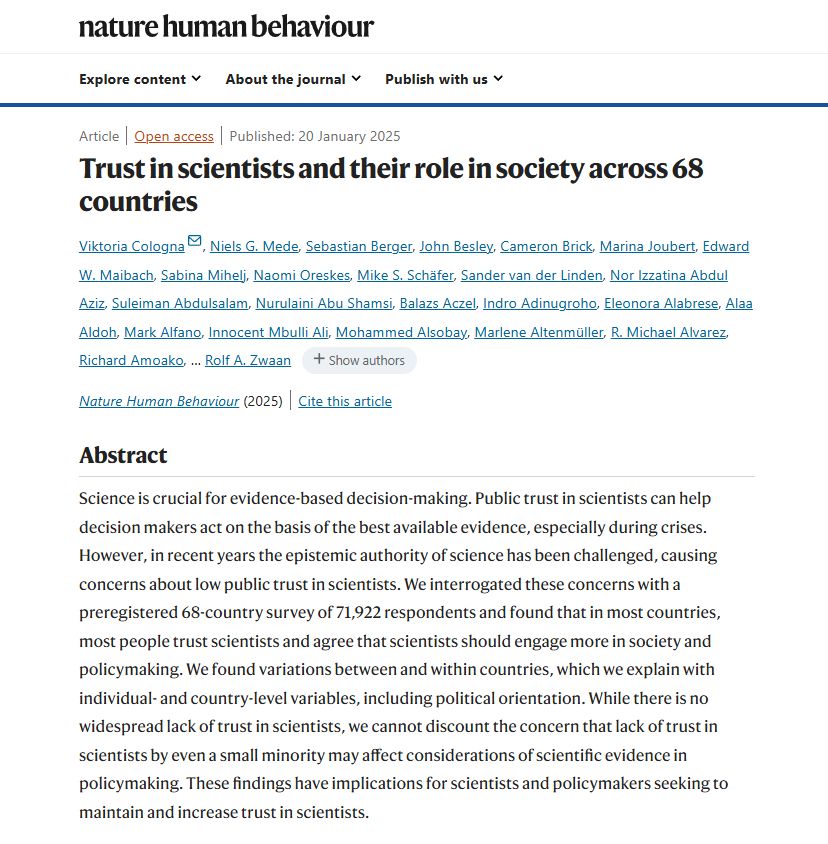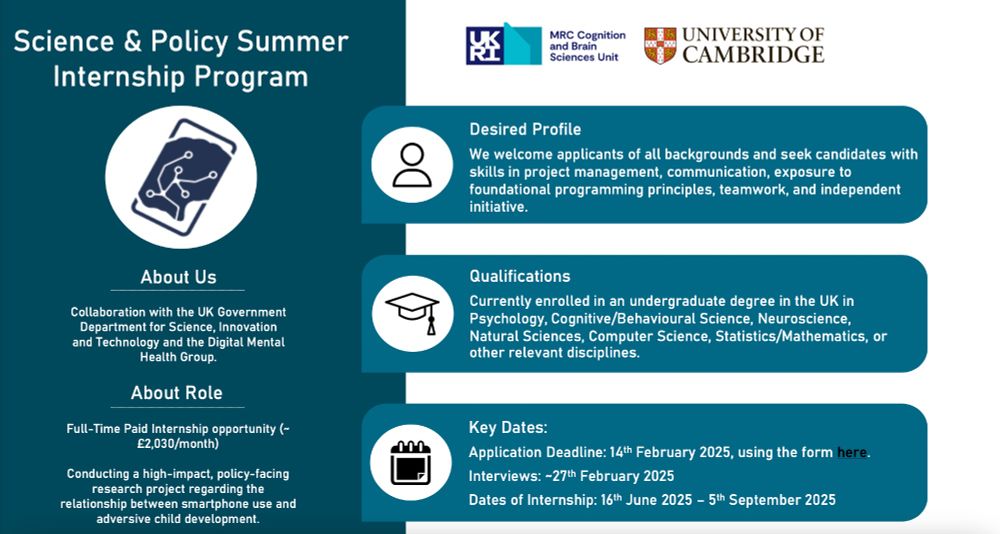
Header: Jamillah Knowles / Better Images of AI / Data People / CC-BY 4.0



Applications are open for our #SciPol25 workshop.
📅18-20 August
We invite researchers and policymakers to share perspectives on best practices for improving the uptake of #research into UK science policy
📩Apply by 3 June
➡️ bit.ly/41GxNmG

Applications are open for our #SciPol25 workshop.
📅18-20 August
We invite researchers and policymakers to share perspectives on best practices for improving the uptake of #research into UK science policy
📩Apply by 3 June
➡️ bit.ly/41GxNmG



Our understanding has grown exponentially since then, here are a few interesting things we’ve learnt along the way ⤵️
sangerinstitute.blog/2022/05/17/s...

Our understanding has grown exponentially since then, here are a few interesting things we’ve learnt along the way ⤵️
sangerinstitute.blog/2022/05/17/s...

www.nature.com/articles/d41...

www.nature.com/articles/d41...

@rjmilne.bsky.social and @jonathanrgoodman.bsky.social explore the challenges in demonstrating trustworthiness in this @uk.theconversation.com article.
🔗 cstu.io/a01e19
@sangerinstitute.bsky.social @connectingscience.bsky.social 🧬🧪🔬

@rjmilne.bsky.social and @jonathanrgoodman.bsky.social explore the challenges in demonstrating trustworthiness in this @uk.theconversation.com article.
🔗 cstu.io/a01e19
@sangerinstitute.bsky.social @connectingscience.bsky.social 🧬🧪🔬
Yet anyone can claim to be trustworthy: how do we tell who actually is?
theconversation.com/government-n...

Yet anyone can claim to be trustworthy: how do we tell who actually is?
theconversation.com/government-n...


It shows: People still #trust scientists and support an active role of scientists in society and policy-making. #OpenAccess available here: www.nature.com/articles/s41... @natureportfolio.bsky.social
(1/13)

It shows: People still #trust scientists and support an active role of scientists in society and policy-making. #OpenAccess available here: www.nature.com/articles/s41... @natureportfolio.bsky.social
(1/13)
How can we ensure that AI tools enhance natural intelligence?
The position is a part of the Estonian Centre of Excellence in Artificial Intelligence.
Please repost - not easy to get people to work in Estonia 🥶
#edusky #neuroAI

🔗Read the article by our Head of Research and Dialogue
@rjmilne.bsky.social and collaborators: cstu.io/ee88a7
#Ethics #Genomics #Dementia #ClinicalTrials

Please share widely.
Want more info? See here: www.linkedin.com/feed/update/...

Please share widely.
Want more info? See here: www.linkedin.com/feed/update/...
www.theneweuropean.co.uk/critical-mas...

www.theneweuropean.co.uk/critical-mas...
www.cambridge.org/core/journal...
🧪
www.cambridge.org/core/journal...
🧪

